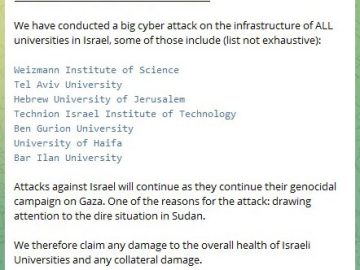The US Treasury Sanctions Burma armed group and several related companies for their alleged involvement in cyber scam centers targeting American citizens.
The Department of the Treasury’s Office of Foreign Assets Control (OFAC) announced the designations as part of a broader effort to combat organized crime, human trafficking, and cybercriminal activities operating out of Southeast Asia.
According to the Treasury Department, OFAC has sanctioned the Democratic Karen Benevolent Army (DKBA), a Burmese armed group, and four of its senior leaders for supporting cyber scam centers in Burma. These operations reportedly defraud Americans through fraudulent investment schemes.
US Treasury Sanctions Burma: OFAC Targets Armed Group and Associated Firms
The agency also designated Trans Asia International Holding Group Thailand Company Limited, Troth Star Company Limited, and Thai national Chamu Sawang, citing links to Chinese organized crime networks. These entities were found to be working with the DKBA and other armed groups to establish and expand scam compounds in the region.
Under Secretary of the Treasury for Terrorism and Financial Intelligence John K. Hurley stated, “criminal networks operating out of Burma are stealing billions of dollars from hardworking Americans through online scams.” He emphasized that such activities not only exploit victims financially but also contribute to Burma’s civil conflict by funding armed organizations.
Scam Center Strike Force Established
In coordination with agencies including the Federal Bureau of Investigation (FBI), U.S. Secret Service (USSS), and Department of Justice, a new Scam Center Strike Force has been launched to counter cyber scams originating from Burma, Cambodia, and Laos.
This task force will focus on investigating and disrupting the most harmful Southeast Asian scam centers, while also supporting U.S. victims through education and restitution programs. The initiative aims to combine law enforcement, financial action, and diplomatic efforts to curb illicit online operations.

An Ongoing Effort to Protect Victims
The US Treasury Sanctions Burma action builds on previous measures targeting illicit actors in the region. Earlier in 2025, the Karen National Army (KNA) and several related companies were sanctioned for their roles in human trafficking and cyber scam activities.
Additional designations in Cambodia and Burma followed, targeting groups such as the Prince Group and Huione Group for operating scam compounds and laundering proceeds from virtual currency investment scams.
According to government reports, Americans lost over $10 billion in 2024 to Southeast Asia-based cyber scam operations, marking a 66 percent increase from the previous year.
Cyber Scams and Human Trafficking Links
Investigations revealed that many individuals working in scam centers are victims of human trafficking, coerced into online fraud through threats and violence. Some compounds, including Tai Chang and KK Park in Burma’s Karen State, are known hubs for cyber scams. The DKBA reportedly provides protection for these compounds while also participating in violent acts against trafficked workers.
These scam networks often use messaging apps and fake investment platforms to deceive Americans. Victims are manipulated into transferring funds to scam-controlled accounts under the guise of legitimate investments.
Sanctions and Legal Implications
Following today’s actions, all property and interests of the designated individuals and entities within the United States are now blocked. The sanctions prohibit any U.S. person from engaging in transactions involving these blocked parties. Violations of OFAC regulations could lead to civil or criminal penalties.
The US Treasury Sanctions Burma initiative underscores the United States’ continued commitment to disrupting global cyber scam operations, holding organized crime networks accountable, and safeguarding victims of human trafficking and financial exploitation.




